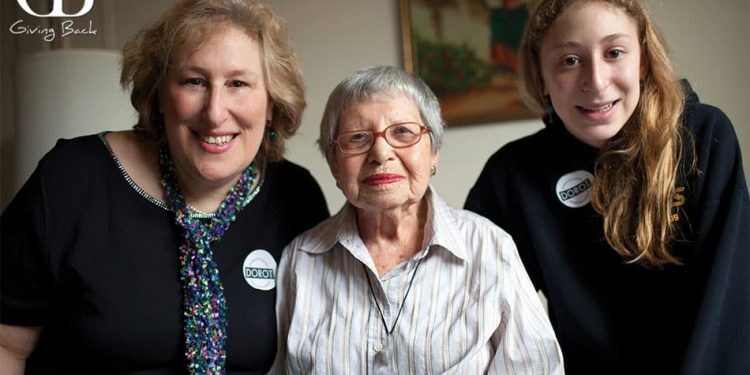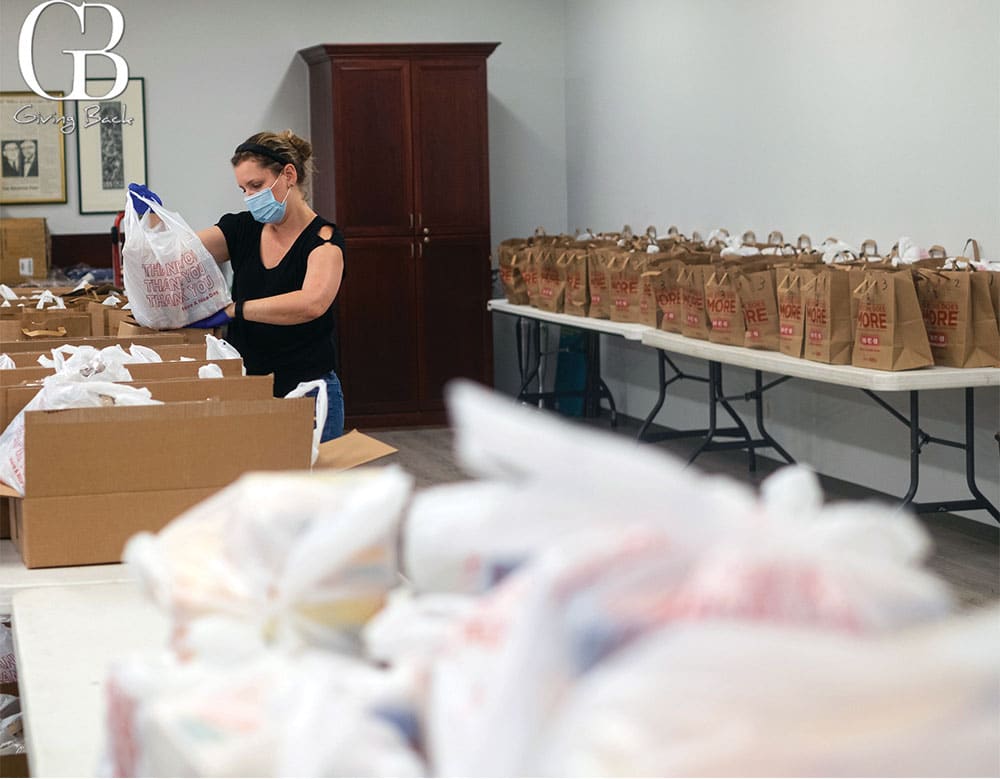Jewish Federation of San Diego County

Raising Awareness and Developing New Solutions to Fight Poverty in the San Diego Jewish Community
Jewish Federation of San Diego County (Federation) partners with organizations throughout the local Jewish community to achieve its mission: to broaden and deepen engagement in Jewish life to strengthen Jewish identity, foster dynamic connections with Israel, and care for all Jews in need. Currently, the Federation is working to mobilize community resources, leaders, and organizations to address the community’s most critical needs, including the urgent efforts to respond to poverty in the San Diego Jewish Community.
“With 16-20 percent of Jewish households earning less than $30,000 annually, many Jewish families struggle to make ends meet but often are unaware of resources that can lift them up,” Darren Schwartz, Chief Planning & Strategy Officer for Jewish Federation of San Diego County shared with GB Magazine. “We can help families access support that makes a significant difference in their lives.”
Through a monthly Working Group on Jewish Poverty & Sustainability, community partners identify the challenges facing Jewish families and ways to overcome them. Along with Federation, the Working Group includes Hebrew Free Loan, Impact Cubed, Jewish Community Foundation San Diego, Jewish Family Service, the Kindness Initiative and Seacrest at Home.
These organizations are educating those who could benefit from the earned income tax credit and assistance provided by 2-1-1 San Diego and the San Diego EITC Coalition. The Working Group encourages all San Diegans to help share important information about accessing this credit within the community.
“One barrier to accessing this financial support is lack of information; other barriers revolve around filing taxes and having other necessary documents,” adds Schwartz. “The good news is that there is free assistance to access this tax credit. Any household earning less than $60,000 annually is eligible. We ask everyone to share this information via email, social media, in-person, and any other way you can.”
La Jewish Federation del condado de San Diego (Federation) se asoció a organizaciones de la comunidad judía local para lograr el éxito de su misión: el ampliar y profundizar el compromiso de la vida judía a través del fortalecimiento de la identidad judía, el promover conexiones dinámicas con Israel y el cuidar de todos los judíos más necesitados. Actualmente, la Federation está trabajando para que los recursos comunitarios, líderes y organizaciones comunitarias se enfoquen en las necesidades más urgentes de la comunidad, incluyendo una pronta respuesta al tema de la pobreza dentro de la comunidad judía de San Diego.
“Con un 16 a un 20 % de los hogares judíos ganando menos de $ 30,000 al año, muchas familias judías se encuentran en una situación económica difícil y muchas veces no son conscientes de los recursos disponibles existentes para mejorar sus vidas” le comenta a la revista GB Darren Schwartz, Jefe de Planificación y Estrategia de la Jewish Federation del condado de San Diego. “podemos ayudar a que las familias accedan a ayuda que torne sus vidas significativamente mejores”.
Por medio reuniones mensuales del Working Group on Jewish Poverty & Sustainability (Grupo de trabajo sobre la pobreza y la sustentabilidad judía), los socios comunitarios identifican los desafíos a los que las familias judías se enfrentan y las posibles soluciones. Además de la Federation, el Working Group incluye aː Hebrew Free Loan, Impact Cubed, Jewish Community Foundation San Diego, Jewish Family Service y the Kindness Initiative and Seacrest at Home.
Estas organizaciones están instruyendo a aquellos que pueden beneficiarse del crédito fiscal y de la asistencia ofrecida por 2-1-1 San Diego y de la San Diego EITC Coalition. El Working Group les pide a las personas de San Diego, que compartan con la comunidad la información sobre el acceso a este crédito.
“Una de las barreras que limitan el acceso a esta ayuda financiera es la falta de información, otras limitantes se basan en el llenado de formularios impositivos y de documentación necesaria” agrega Schwartz. “La buena noticia es que ahora existe la asistencia gratuita para acceder a este crédito impositivo. Cualquier hogar que perciba un ingreso menor a $ 60,000 al año, puede acceder a ello. Les pedimos por favor que compartan esta información por correo electrónico, redes sociales, en persona o de la manera que les sea posible.”








